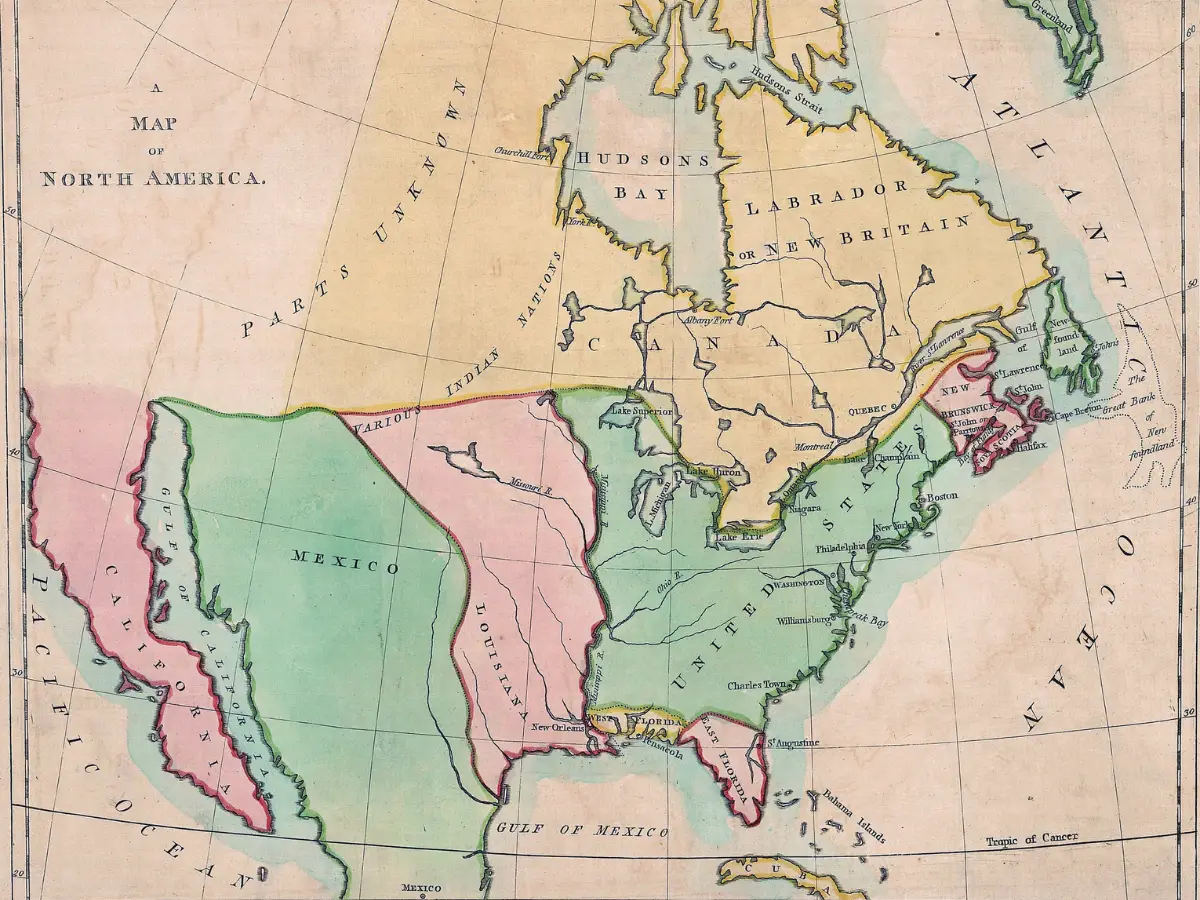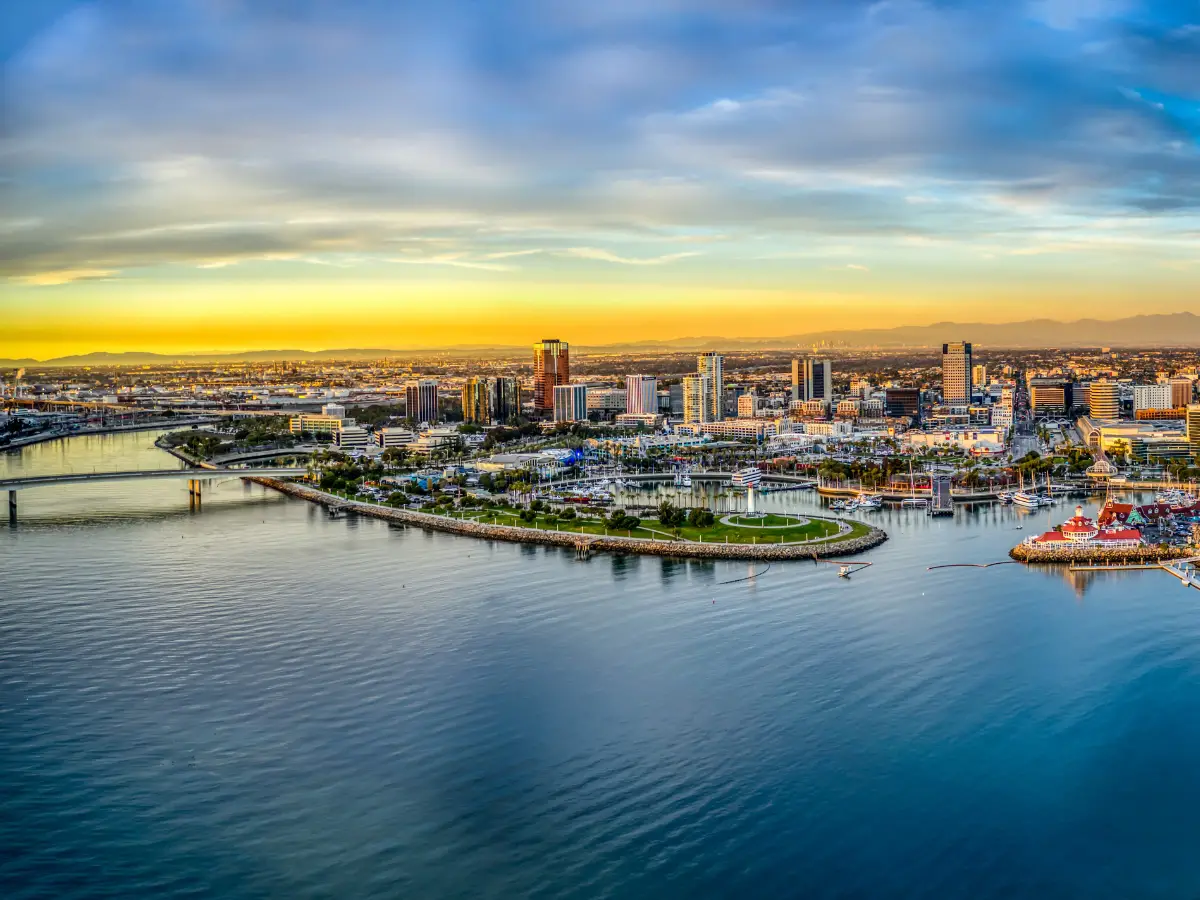California is the most populous state in the United States and has the largest economy of any state. If California were a country, it would have the fifth-largest economy globally, behind only the United States, China, Japan, and Germany. With such a robust economic presence, it’s natural to wonder what would happen if California became an independent country.
There has been talk of California seceding from the United States for years, with proponents arguing that the state would be better off on its own. However, becoming an independent country is not easy, and many factors must be considered. For example, California must establish its government, military, and currency and negotiate trade agreements with other countries.
Additionally, there would be questions about how to divide up federal assets and liabilities and how to handle issues such as immigration and foreign policy. Despite these challenges, the idea of California as a separate country continues to be debated.

California as a Sovereign Nation
California is one of the 50 states of the United States, but what if it were to become a sovereign nation? Various groups and individuals have discussed this hypothetical scenario in recent years. This section will explore what California might look like as a sovereign nation, focusing on its political structure and economic status.
Political Structure
If California became a sovereign nation, it would need to establish its political structure. This could take many forms, such as a presidential or parliamentary system. It is also possible that California could adopt a unique political structure that is not currently used by any other nation.
One potential challenge for California as a sovereign nation would be the need to establish its own foreign policy. As part of the United States, California benefits from the country’s diplomatic relationships with other nations. If California were to become a sovereign nation, it would need to establish its own diplomatic relationships with other countries.
Economic Status
California has the largest economy of any state in the United States and is home to many of the world’s most innovative and successful companies. If California were to become a sovereign nation, it would likely continue to have a strong economy, but there could be some challenges.
One potential challenge for California as a sovereign nation would be the need to establish its own currency. Currently, California uses the US dollar as its currency, but if it were to become a sovereign nation, it would need to establish its own currency and monetary policy.
Another potential challenge for California as a sovereign nation would be the need to establish its own trade relationships with other countries. As part of the United States, California benefits from the country’s trade agreements with other nations. If California were to become a sovereign nation, it would need to negotiate its own trade agreements.
Overall, if California were to become a sovereign nation, it would face many challenges, but it would also have many opportunities. Its strong economy and innovative spirit could help it thrive as a sovereign nation, but it would need to establish its own political structure and navigate the challenges of establishing its own foreign policy and trade relationships.

Comparison with Global Superpowers
As the world’s sixth-largest economy, California’s GDP compares favorably to that of France, which produced $2.42 trillion during the same period. However, when compared to global superpowers such as China and the United States, California’s economy is relatively small.
China is considered to be an emerging superpower or a potential superpower. Some experts argue that China will pass the United States as a global superpower in the coming decades. China’s 2020 GDP was US$14.7 trillion, the second-highest in the world. The United States, on the other hand, has the largest economy in the world, with a GDP of $21.4 trillion in 2019.
If California were a country, its GDP of $2.44 trillion in 2015 would have ranked it as the world’s fifth-largest economy, ahead of the United Kingdom and India. However, it would still be far behind the United States and China.
In terms of military power, the United States is considered the world’s most powerful country. Its military spending is more than the next ten countries combined. China, on the other hand, has the largest standing army in the world. California, as a state, has a National Guard that is under the command of the governor and can be called upon to assist in emergencies.
In terms of global influence, the United States is considered the most influential country in the world, followed by China. California, as a state, has a significant impact on the global economy, culture, and politics. It is home to some of the world’s most innovative companies and influential cultural movements. However, its influence is limited to the state level and does not extend to the global stage.
Overall, while California’s economy is impressive, it is still relatively small compared to global superpowers such as China and the United States. Its military power and global influence are also limited.

Impact on United States
If California were to become its own country, it would have a significant impact on the United States. Here are a few areas where this impact would be felt:
Economy
California is the largest economy in the United States and the fifth largest in the world. If it were to become its own country, it would take a significant chunk out of the US economy. However, it’s important to note that California’s economy is heavily intertwined with the rest of the United States. Many businesses that are headquartered in California have operations and employees in other states. Additionally, California relies on the rest of the United States for goods and services that it doesn’t produce itself.
Politics
California is a heavily Democratic state, and its political views differ significantly from many other parts of the United States. If it were to become its own country, this would likely impact the balance of power in the United States. The loss of California’s electoral votes would make it harder for Democrats to win national elections, and it would also reduce the influence of California’s representatives in Congress.
Military
California is home to several important military bases, including Naval Base San Diego and Camp Pendleton. If California were to become its own country, the United States would lose access to these bases. Additionally, California’s military would be significantly smaller than the United States military, which could impact national security.
Overall, if California were to become its own country, it would have a significant impact on the United States. However, the exact nature of this impact is difficult to predict, and it would depend on a variety of factors, including how the separation was handled and how the two entities interacted after the split.

Challenges and Opportunities
Economic Challenges
As a standalone country, California would face several economic challenges. The state already has a large economy, but it heavily relies on the tech industry, which can be volatile. Additionally, California has a high cost of living, which could make it difficult to attract businesses and workers. The state also has a significant wealth gap, which could lead to social unrest.
However, California also has several economic opportunities. It has a highly educated workforce, a diverse economy, and a strong infrastructure. The state is also home to several world-class universities and research institutions, which could attract investment and talent.
Environmental Concerns
California faces several environmental challenges, including drought, wildfires, and rising sea levels. As a country, it would need to develop sustainable policies to address these issues. However, California has already taken steps to address climate change, such as implementing a cap-and-trade program and investing in renewable energy.
California also has several environmental opportunities. It has abundant solar and wind resources, which could help it become a leader in renewable energy. The state is also home to several national parks and protected areas, which could attract tourists and support the economy.
Social Implications
As a standalone country, California would need to address several social issues, including immigration, healthcare, and education. The state has a large and diverse population, which could lead to cultural tensions. Additionally, California has a high poverty rate and a significant homeless population.
However, California also has several social opportunities. It has a progressive political culture, which could lead to innovative policies and social programs. The state is also home to several world-class cultural institutions, which could promote diversity and tolerance.
In conclusion, while California would face several challenges as a standalone country, it also has several opportunities. Its diverse economy, highly educated workforce, and strong infrastructure could help it thrive. However, it would need to address environmental, economic, and social issues to ensure its long-term success.
California’s Global Influence
California’s economic output is impressive, with a GDP of $2.44 trillion in 2015, positioning it as the world’s fifth-largest economy. Its economy is larger than that of India and the UK, and it is comparable to that of France. As a result, California’s global influence is significant.
The state’s influence extends beyond its economy. California is a hub for innovation, technology, and entertainment, with Silicon Valley, Hollywood, and Disneyland all located within its borders. These industries have a global reach, and California’s influence in these areas is substantial.
California is also a leader in environmental policy, with ambitious goals to reduce greenhouse gas emissions and increase renewable energy production. The state’s policies have influenced other regions and countries to follow suit, making California a global leader in climate action.
In addition, California’s diverse population and culture have a global impact. The state is home to people from all over the world, and its cultural influence can be seen in music, fashion, and cuisine. California’s influence in these areas is significant and has a worldwide reach.
Overall, California’s global influence is undeniable, with its economy, innovation, environmental policy, and culture all contributing to its impact on the world stage.
Potential Scenarios
If California were to become a country, there are several potential scenarios that could play out. Here are a few possibilities:
Economic powerhouse: California is currently the fifth largest economy in the world, so it’s possible that it could become a major economic powerhouse as a country. With its tech industry, entertainment industry, and agricultural sector, California has a diverse economy that could thrive on its own. However, it’s important to note that California’s economy is currently propped up by the US federal government, so it’s unclear how it would fare without that support.
Environmental leader: California is known for its progressive environmental policies, and as a country, it could become a leader in the fight against climate change. It could invest heavily in renewable energy, implement strict emissions standards, and work to protect its natural resources. However, it’s worth noting that California’s environmental policies have often been at odds with the federal government’s policies, so it’s unclear how it would navigate those tensions as a country.
Political instability: California is a deeply divided state, with urban and coastal areas leaning liberal and rural areas leaning conservative. If it were to become a country, those divisions could become even more pronounced. It’s possible that California could become politically unstable, with different regions vying for power and influence. This could lead to conflict and instability, both within the country and with neighboring countries.
Overall, it’s impossible to predict exactly what would happen if California were to become a country. However, these scenarios provide a glimpse into some of the possibilities.
Implications for International Relations
California’s immense size and economic power make it a significant player in the international arena. If California were a country, it would be the sixth-largest economy in the world, with a GDP larger than that of countries like Poland and Canada. As such, the state’s policies and actions have implications for international relations.
One area where California’s influence is particularly notable is climate change. The state has taken a leading role in combating global warming, with ambitious targets for reducing greenhouse gas emissions and promoting renewable energy. California’s climate policies have influenced other states and countries, and the state has forged partnerships with other subnational entities around the world to promote climate action.
Another area where California’s international influence is felt is in trade. The state is a major exporter, with a diverse range of products including technology, entertainment, and agriculture. California’s trade policies and agreements can have significant impacts on other countries, particularly those with which it has close economic ties.
California also has a large and diverse population, with significant communities of immigrants from around the world. The state’s policies on immigration and multiculturalism can have implications for relations with other countries, particularly those with significant diaspora populations in California.
Overall, California’s size, economic power, and progressive policies make it a significant player in international relations. The state’s actions can have implications for other countries, and its partnerships with other subnational entities around the world demonstrate the potential for subnational actors to play a role in global governance.
Frequently Asked Questions
What would be the GDP of California if it was a country?
If California was a country, it would have the fifth-largest economy in the world. According to the data from the World Bank, California’s GDP in 2020 was $3.1 trillion, which is higher than the GDP of countries like Germany, the United Kingdom, and India.
Where would California rank in the world by GDP if it was a country?
If California was a country, it would be ranked fifth in the world by GDP, after the United States, China, Japan, and Germany.
If California was a country, what would be its economy ranking?
California’s economy would be ranked fifth in the world if it became a country. Its economy is diverse and includes sectors like technology, entertainment, agriculture, and tourism.
Compared to other countries, how wealthy would California be if it became a country?
If California became a country, it would be one of the wealthiest countries in the world. Its GDP per capita in 2020 was $78,000, which is higher than countries like Switzerland, Norway, and the United States.
What would be the size of California’s economy if it was an independent country?
If California was an independent country, its economy would be one of the largest in the world. According to the data from the World Bank, California’s GDP in 2020 was $3.1 trillion, which is higher than the GDP of countries like Germany, the United Kingdom, and India.
Where would California rank globally in terms of GDP per capita if it became a country?
If California became a country, it would be ranked among the top countries in the world in terms of GDP per capita. Its GDP per capita in 2020 was $78,000, which is higher than countries like Switzerland, Norway, and the United States.






